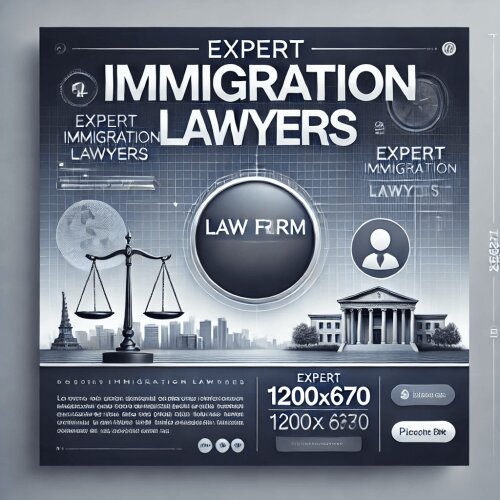Best ADR Mediation & Arbitration Lawyers in Mississippi
Share your needs with us, get contacted by law firms.
Free. Takes 2 min.
Or refine your search by selecting a city:
List of the best lawyers in Mississippi, United States
About ADR Mediation & Arbitration Law in Mississippi, United States
Alternative Dispute Resolution (ADR) encompasses methods for resolving legal disputes outside the traditional courtroom setting. In Mississippi, the two primary forms of ADR are mediation and arbitration. Mediation is a voluntary process where a neutral third party helps disputing parties reach a mutually acceptable solution. Arbitration is more formal, where an arbitrator hears evidence from both sides and makes a binding decision. ADR is widely used in Mississippi in civil, family, employment, business, and contract disputes. The goal of ADR is to offer a quicker, less costly, and more flexible alternative to litigation.
Why You May Need a Lawyer
Legal issues can be complex, and ADR sessions often involve important rights and substantial amounts of money or sensitive matters, such as child custody or business relationships. You may need a lawyer in situations like:
- Interpreting the terms of an ADR agreement or clause in a contract
- Navigating the procedural rules of mediation or arbitration
- Representing your interests during mediation or arbitration sessions
- Understanding the legal implications of a mediated settlement or arbitral award
- Enforcing or contesting an arbitration decision in court
- Ensuring that all relevant evidence and arguments are properly presented
- Handling disputes involving high-value claims or complex legal issues
A lawyer can help you evaluate whether ADR is appropriate for your situation, prepare your case, and protect your rights throughout the process.
Local Laws Overview
In Mississippi, ADR is governed by a combination of state statutes, court rules, and ethical guidelines. Key aspects to consider include:
- Mississippi adopted the Uniform Arbitration Act, which sets out procedures for enforcing arbitration agreements and awards.
- The Mississippi Court Annexed Mediation Rules require parties in certain civil and family law cases to engage in mediation before trial.
- Mississippi courts generally uphold mediation and arbitration clauses in contracts unless there is a strong reason not to enforce them.
- Parties may select their own mediator or arbitrator, but there are qualified professionals listed through state and local organizations.
- Mediation is confidential, meaning statements made during mediation are not admissible in court if the case does not settle.
- Arbitration decisions, known as awards, are generally final and binding, but limited grounds exist for appeal or challenge.
- Court filing fees and ADR service provider fees vary, so financial considerations should be reviewed in advance.
Frequently Asked Questions
What is the main difference between mediation and arbitration in Mississippi?
Mediation is a voluntary process focused on helping the parties negotiate a settlement with the assistance of a neutral third party, while arbitration involves a third party making a binding decision after hearing both sides.
Do I need a lawyer to participate in mediation or arbitration?
Lawyers are not required by law, but having legal advice or representation can help you understand your rights and achieve the best possible outcome.
Are mediated agreements legally binding in Mississippi?
Yes, once the parties sign a written mediated agreement, it is generally enforceable as a contract.
Can I force someone to participate in ADR?
In most cases, both parties must agree to mediate or arbitrate, unless a contract or court order requires it.
What types of disputes are commonly resolved through ADR in Mississippi?
Common cases include business disputes, family law matters, employment disputes, personal injury claims, and contract disagreements.
How private are ADR proceedings compared to court cases?
ADR proceedings are generally private and confidential, whereas court proceedings are usually public record.
How much does ADR cost in Mississippi?
Costs vary depending on the complexity of the dispute, the chosen mediator or arbitrator, and service provider fees. ADR is usually less expensive than going to trial.
Can I appeal an arbitration award?
It is difficult to appeal an arbitration award in Mississippi. Courts will only set aside awards in limited situations, such as fraud, corruption, or clear procedural irregularities.
Will the court enforce the outcome of ADR?
Yes, courts in Mississippi generally enforce mediated settlements and arbitration awards, provided they meet legal requirements.
What happens if mediation fails?
If mediation does not lead to an agreement, parties can proceed to arbitration (if provided for in their contract) or go to trial in court.
Additional Resources
For further information and assistance regarding ADR mediation and arbitration in Mississippi, consider reaching out to these resources:
- Mississippi Bar Association - Alternative Dispute Resolution Section
- Mississippi Dispute Resolution Center
- Local county court clerks for information on court-annexed mediation programs
- Office of the Mississippi Secretary of State for business-related disputes
- Community mediation centers and legal aid organizations for low-cost or sliding-scale mediation
Next Steps
If you need legal assistance with ADR mediation or arbitration in Mississippi, start by gathering all relevant documentation related to your dispute. Consider consulting with an attorney experienced in ADR to evaluate your case and recommend the best path forward. You should also inquire about available ADR programs through your local court or the organizations mentioned above. Remember to ask about potential costs, confidentiality, and the qualifications of mediators or arbitrators. The right legal guidance can help you resolve your dispute effectively and efficiently.
Lawzana helps you find the best lawyers and law firms in Mississippi through a curated and pre-screened list of qualified legal professionals. Our platform offers rankings and detailed profiles of attorneys and law firms, allowing you to compare based on practice areas, including ADR Mediation & Arbitration , experience, and client feedback.
Each profile includes a description of the firm's areas of practice, client reviews, team members and partners, year of establishment, spoken languages, office locations, contact information, social media presence, and any published articles or resources. Most firms on our platform speak English and are experienced in both local and international legal matters.
Get a quote from top-rated law firms in Mississippi, United States — quickly, securely, and without unnecessary hassle.
Disclaimer:
The information provided on this page is for general informational purposes only and does not constitute legal advice. While we strive to ensure the accuracy and relevance of the content, legal information may change over time, and interpretations of the law can vary. You should always consult with a qualified legal professional for advice specific to your situation.
We disclaim all liability for actions taken or not taken based on the content of this page. If you believe any information is incorrect or outdated, please contact us, and we will review and update it where appropriate.
Browse adr mediation & arbitration law firms by city in Mississippi
Refine your search by selecting a city.











